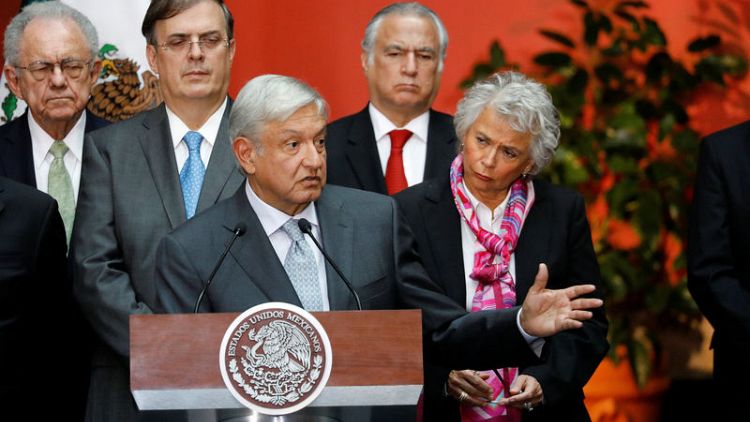By Stefanie Eschenbacher
MEXICO CITY (Reuters) - Mexico's next government will look to fintech companies and large corporate banks to increase financial inclusion in the country, where only one-third of adults have a bank account, senior officials said on Tuesday.
Arturo Herrera, one of two future deputy finance ministers, said in an interview that the lack of financial inclusion was one of the biggest obstacles in the new government's fight against poverty, inequality and slow economic growth.
Leftist President-elect Andres Manuel Lopez Obrador, who is scheduled to take office on Dec. 1, has made spreading the wealth more evenly a priority of his administration.
Herrera said fintechs, commercial and government-controlled banks all had a part to play in improving access to financial products and services, arguing that a "lack of depth" in the sector was hampering progress.
"We will still have to create, or help create, a basic infrastructure that enables transactions between people or between people and financial institutions in some of the most rural, most disconnected areas of the country," he said.
Telecommunications companies and convenience stores would be consulted to help build such infrastructure, he said.
His said his team was also examining how to develop digital banking services, and could revisit Mexico's fintech law in a bid to improve financial inclusion.
Federal officials are reviewing the law, which passed Congress in March.
Despite several efforts, financial inclusion in Mexico has not increased significantly in recent years.
A 2015 assessment by Mexico's banking regulator found that 44 percent of adults had a bank account but two-thirds of them were saving in informal ways.
Fintechs have relied on technology to deliver financial services, often leapfrogging traditional banking infrastructure such as branch offices, cash machines and personal attention.
"The next step is to speak to the commercial banking sector to understand what characteristics would help them consider this as a profitable segment or one that could become profitable in the future," Herrera said.
He said state-owned development banks must become "more efficient, more dynamic" and be held to strict criteria when measuring progress on financial inclusion.
Gerardo Esquivel, the other incoming deputy finance minister, said that to find more efficient solutions to fight poverty and inequality, welfare programs would likely be combined or restructured to avoid duplications.
"There will be deep reforms in social programs," he said.
(Reporting by Stefanie Eschenbacher; Editing by Dave Graham, Toni Reinhold)
